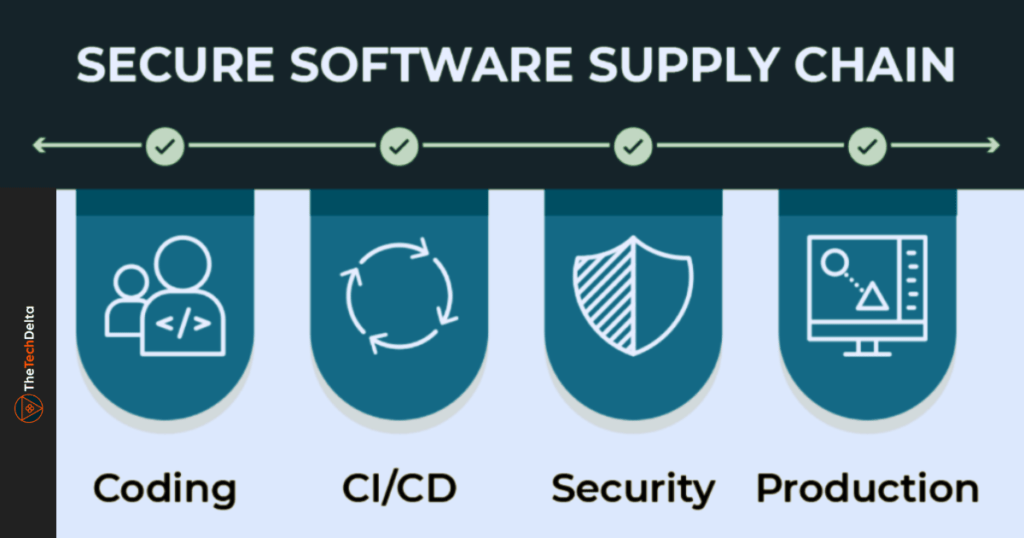Secrets secrets are no fun, yet they constitute the lifeblood of secure digital operations. Whether strengthening personal bonds or fortifying application security, these elusive fragments play a extremely pivotal role 🙂
Developers and application security engineers grapple with the consequences of exposed secrets, ranging from embarrassing mishaps to severe breaches that jeopardize security protocols and integrity.
- Decoding the Essence of Secrets Secrets Are No Fun
- The Intricacies of Software Supply Chain Security
- Guarding Against Secrets Leakage – The Best Practices for Robust Security
- Beyond Repositories – Tackling Secrets in the Wild
- Enter Too Many Secrets by Checkmarx
- Unveiling the Magic – Installing Too Many Secrets
- Conclusion – Embrace the Power of Secrets Responsibly
- FAQs – Frequently Asked Questions
Decoding the Essence of Secrets Secrets Are No Fun
Within the expansive universe of applications, secrets secrets are no fun encapsulate critical data like passwords, API keys, and cryptographic gems. These confidential fragments, crucial for seamless functionality, demand adept concealment. Developers, acting as guardians, implement robust security measures 🔥
These encompass encryption and access control, forming an impenetrable fortress to shield these secrets, secrets are no fun from the prying eyes of unauthorized access attempts.
The Intricacies of Software Supply Chain Security
The intricate tapestry of software supply chain security intertwines effortlessly with the concept that secrets, secrets are no fun. Extending from collaboration to deployment, secrets, whether access keys or passwords, act as the gateway for potential attackers to breach sensitive data or systems.

Prioritizing the protection of these secrets secrets are no fun within the software supply chain becomes imperative to thwart potential data breaches that could otherwise inflict significant harm on an organization’s financial standing and reputation.
Also Read : GRC and CyberSecurity Synergy – The Strategic Security for Business Resilience
Guarding Against Secrets Leakage – The Best Practices for Robust Security
To fortify against the inadvertent exposure of secrets, adopting a comprehensive set of best practices is imperative. Implementing these measures not only ensures a robust defense against potential breaches but also fosters a culture of responsible information management.
A. Utilize Environment Variables
When safeguarding sensitive information, such as passwords and API keys, it is advisable to store these secrets in environment variables rather than hardcoding them directly into the code. This practice enhances manageability, preventing accidental exposure in code repositories.
B. Employ a .gitignore File
Create and employ a well-crafted .gitignore file to exclude files containing secrets from Git tracking. By doing so, sensitive information remains shielded, eliminating the risk of unintentional commits to repositories.
C. Leverage Secrets Management Tools
Take advantage of advanced secrets management tools designed to securely store and manage application or system secrets. These tools provide an added layer of security through encryption and restricted access, ensuring that only authorized individuals can access confidential information.
D. Embrace Encryption
Encrypting secrets before storing them in code repositories adds an additional layer of security. This cryptographic safeguard makes it significantly more challenging for unauthorized entities to gain access to sensitive information, enhancing overall protection.
E. Activate Two-Factor Authentication (2FA)
Enhance security measures by activating Two-Factor Authentication (2FA) for code repositories. This proactive step adds an extra layer of verification, making it considerably more difficult for unauthorized entities to gain access and ensuring a higher level of protection against potential breaches.
By diligently adhering to these best practices, individuals and organizations can significantly reduce the risk of exposing sensitive information. Adopting these measures not only fortifies against inadvertent leaks but also cultivates a security-conscious environment that safeguards against potential threats.
Beyond Repositories – Tackling Secrets in the Wild
While diligently following best practices fortifies code repositories, the challenge remains – what about secrets scattered in content management systems, plain text documents, emails, and chat logs?
Enter Too Many Secrets by Checkmarx
Secrets, secrets are no fun when exposed, but fear not. Too Many Secrets (2MS) steps forward as a knight in shining armor, dedicated to safeguarding sensitive information like passwords, credentials, and API keys.
As an open-source project, 2MS not only supports Confluence but is expanding its protective reach to platforms like Discord. The installation process is a breeze, and with its inherent extensibility, 2MS evolves into a versatile guardian for various communication and collaboration platforms.
Unveiling the Magic – Installing Too Many Secrets
Installing and running 2MS is a swift process, aligning seamlessly with the mantra that secrets secrets are no fun when exposed.
Built on the robust secrets detection engine, gitleaks, and featuring plugins for popular platforms, 2MS empowers the open-source community to contribute effortlessly. The following commands provide a glimpse into the simplicity of getting started on OsX
# brew install go
# git clone https://github.com/Checkmarx/2ms.git
# cd 2ms
# go build
# ./2ms --confluence https://<MyConfluence>.atlassian.net/wiki --confluence-spaces <MySpace> --confluence-username <MyUsername> --confluence-token <MyToken>
Conclusion – Embrace the Power of Secrets Responsibly
As we navigate the intricate dance of digital security, secrets emerge as both our shield and vulnerability. Through the adoption of best practices, the utilization of advanced tools like 2MS, and the cultivation of a culture centered on responsible information management, we carve a path toward a more secure and resilient digital landscape.
While secrets may lose their charm when exposed, it’s through these deliberate measures that they transform into the steadfast guardians of a trustworthy and fortified digital world.
If you found these security learnings valuable, don’t miss out on more exclusive content. Follow us on Twitter and Instagram to stay informed about emerging threats and developments.
Check out the Cyber Safety Section and Subscribe our Newsletter, Join our community and gain access to the latest cybersecurity trends to bolster your defense against evolving threats & associated risks😇
FAQs – Frequently Asked Questions
1. Why is it essential to keep secrets hidden in software applications?
In software applications, secrets such as passwords and API keys are sensitive information crucial for functionality. Keeping them hidden prevents unauthorized access, ensuring the security of the application and its data.
2. How can developers safeguard secrets in code repositories?
Developers can safeguard secrets in code repositories by using environment variables, employing a .gitignore file to exclude secret-containing files, leveraging secrets management tools for secure storage, embracing encryption, and activating Two-Factor Authentication (2FA) for added security.
3. What challenges arise when secrets are scattered in content management systems and other digital assets?
When secrets are scattered in content management systems, plain text documents, emails, and chat logs, the challenge lies in protecting them beyond code repositories. This demands specialized tools and practices to ensure the confidentiality of sensitive information.
4. How does “Too Many Secrets” by Checkmarx contribute to information security?
“Too Many Secrets” (2MS) by Checkmarx contributes to information security by serving as an open-source project designed to safeguard sensitive information, including passwords, credentials, and API keys. It supports various platforms and offers extensibility for diverse communication and collaboration tools.
5. Why is responsible information management crucial in the digital landscape?
Responsible information management is crucial in the digital landscape to establish a secure and resilient environment. It involves adopting best practices, utilizing advanced tools, and cultivating a culture that prioritizes the protection of secrets, ultimately fortifying against potential breaches and ensuring a trustworthy digital world.



